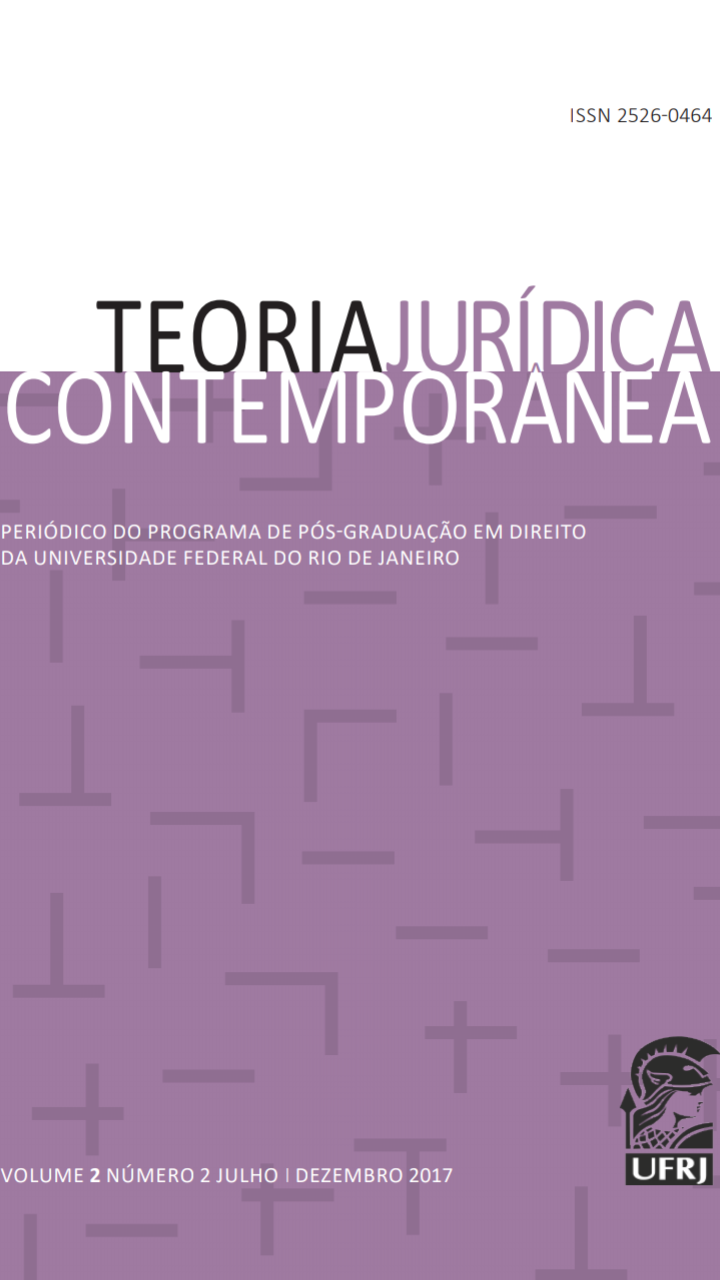Entrevista com a Professora Ana Lúcia de Lyra Tavares
DOI:
https://doi.org/10.21875/tjc.v2i2.14969Abstract
RESUMO: Entrevista com a Professora Ana Lúcia de Lyra Tavares, professora assistente da Pontifícia Universidade Católica do Rio de Janeiro, Rio de Janeiro, RJ, Brasil
ABSTRACT: Interview with Ana Lúcia de Lyra Tavares, assistant professor at Pontifícia Universidade Católica do Rio de Janeiro, Rio de Janeiro, RJ, Brasil
References
HIRSCHL, Ran. Comparative Matters: The Renaissance of Comparative Constitutional Law. Oxford University Press: Nova York, 2014.
KISCHEL, Uwe. La méthode en droit comparé. L'approche contextuelle. Revue Internationale de Droit Comparé, v. 68, n. 4, 2016.
LOIS, Cecília Caballero; MARQUES, Gabriel Lima. O Supremo Tribunal Federal e o Argumento de Direito Constitucional Comparado: Uma Leitura Empírica a partir dos Casos de Liberdade de Expressão no Brasil. Direito, Estado e Sociedade. n. 47, 2015.
SACCO, Rodolfo. La comparaison juridique au service de la connaissance du droit. Economica: Paris, 1991. TAVARES, Ana Lúcia de Lyra. Nota sobre as dimensões do Direito Constitucional comparado. Direito, Estado e Sociedade. n. 14, 1999.
WATT, Horatia Muir. La fonction subversive du droit comparé. Revue Internationale de Droit Comparé, v. 52, n. 3, 2000.
ZWEIGERT, Konrad; KÖTZ, Hein. An Introduction to Comparative Law. Oxford University Press: Nova York, 1987.
Downloads
Published
Issue
Section
License
The authors who publish in this journal agree with the following terms:
1. The authors maintain the copyright and grant the journal the right of first publication, with the work simultaneously licensed under the Creative Commons Attribution License that allows the sharing of the work with recognition of authorship and initial publication in this journal.
2. Authors are allowed to assume additional contracts separately, for non-exclusive distribution of the version of the work published in this journal (e.g., publishing in an institutional repository or as a book chapter), with acknowledgment of authorship and initial publication in this journal.
3. Authors are allowed and encouraged to publish and distribute their work online (e.g., in institutional repositories or as a personal page) at any point before or during the editorial process, as this may generate productive changes, as well as increase the impact and citation of the published work (See The Effect of Open Access).

This work is licensed under a Creative Commons Attribution-ShareAlike 3.0 Brazil License.

